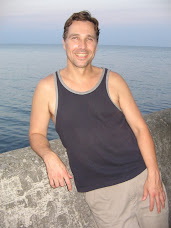VOSS by PATRICK WHITE
Voss is a surprising book. Initially bored with its historical aspects, I eventually found myself intrigued by its visionary qualities. The title character, a
German who sets out to explore the harsh Australian Outback in the mid-1800s,
is presented as both godlike and demon-like, and therein lies the book's
powerful spiritual imagery. Voss's most charged relationship grows from a brief
meeting with the rebellious niece of a man who funds his explorations, and with
whom he melds emotionally and spiritually during his travels. The descriptions
of the perilous desert passage are interesting enough, as is the depiction of aborigines
as nature's innocents, but the metaphysical exploration of Voss's inner struggles
are riveting.
JAMES BALDWIN by DAVID LEEMING
Biographies don't get much better than this one. Nor do their subjects get more interesting. Leeming does a great job of animating his friend and mentor, the black, gay writer-activist, a leading figure in the 60s American Civil Rights Movement. Placing Baldwin's life and work in an historical context, Leeming allows one to illuminate the other, while building a complex and compelling portrait of the man himself.
ANOTHER COUNTRY by JAMES BALDWIN
Baldwin has written far more controlled works, but it's the raging fire at the core of this one that brings it to life for me, despite its technical shortcomings. A surprisingly frank portrait of bohemian New York in the late-1950s, its prose is infused with the language and rhythms of the Beats, which tends to give it an aura of experimentation. But this is a hold-nothing-back sort of book, and that's exactly what sets it apart from Baldwin's smoother works, like Giovanni's Room, where the holding back gets in the way of the story. Centered around the lovers, friends and relatives of a young black jazz musician who kills himself, the book's charged and highly explicit sexuality (gay, straight and bi), the descriptions of alcohol and drug use, and its despairing vision of pre-liberation America is quite stunning for the era. Baldwin's anger with the racial-sexual hypocrisy of his times drives this story, even while he sermonizes to his readers and unapologetically uses his characters as pawns to dramatize his themes.
JAMES BALDWIN by DAVID LEEMING
Biographies don't get much better than this one. Nor do their subjects get more interesting. Leeming does a great job of animating his friend and mentor, the black, gay writer-activist, a leading figure in the 60s American Civil Rights Movement. Placing Baldwin's life and work in an historical context, Leeming allows one to illuminate the other, while building a complex and compelling portrait of the man himself.
ANOTHER COUNTRY by JAMES BALDWIN
Baldwin has written far more controlled works, but it's the raging fire at the core of this one that brings it to life for me, despite its technical shortcomings. A surprisingly frank portrait of bohemian New York in the late-1950s, its prose is infused with the language and rhythms of the Beats, which tends to give it an aura of experimentation. But this is a hold-nothing-back sort of book, and that's exactly what sets it apart from Baldwin's smoother works, like Giovanni's Room, where the holding back gets in the way of the story. Centered around the lovers, friends and relatives of a young black jazz musician who kills himself, the book's charged and highly explicit sexuality (gay, straight and bi), the descriptions of alcohol and drug use, and its despairing vision of pre-liberation America is quite stunning for the era. Baldwin's anger with the racial-sexual hypocrisy of his times drives this story, even while he sermonizes to his readers and unapologetically uses his characters as pawns to dramatize his themes.






No comments:
Post a Comment